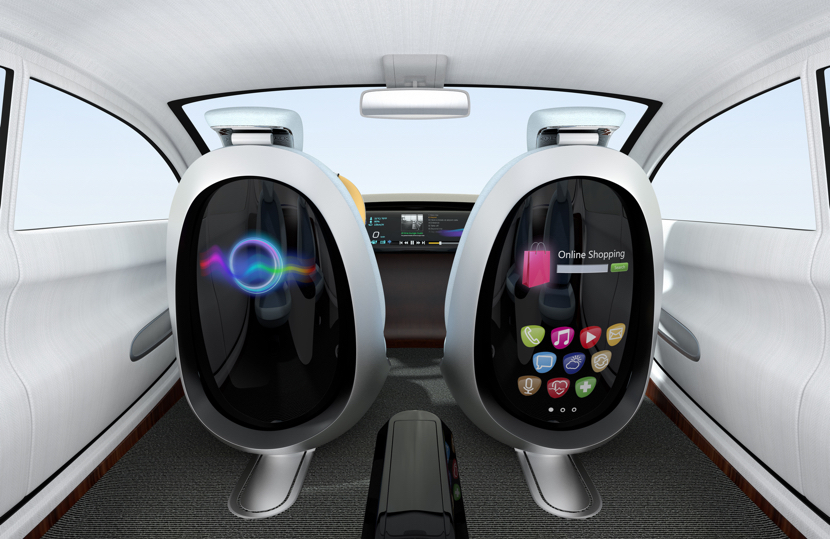
Image by: Chesky_W, ©2016 Getty Images
This article is about information governance (IG). Trust me.
I’ve been reading, thinking, and talking to smart folk about the future of automated vehicles—artificial intelligence (AI) robots transporting humans and other stuff. With the upcoming elections, there’s been lots of talk about jobs, jobs, jobs—talk about employment but not employability. I live in Madison, Wisconsin, and our unemployment rate is under four percent; yet, there are pockets of unemployable people. Furthermore, our clients are seeing the "boomer retirement boom"—as in explosion, as in a devastating, destructive force. When 30% to 75% of your experience and intellectual know-how walks out the door and onto a fishing boat, it’s more than a bit disconcerting and disruptive.
That gets me to the first bit of IG—capturing process knowledge and codifying it in a system; automate processes so fewer people can get the job done. There's nothing new here, except that the issue will be exacerbated by a shrinking workforce and demand for knowledge workers that will drive up staff costs and force innovation: Think knowledge management, process reengineering, and technology.
My 27-year-old, technology guru nephew and I were wandering through many topics while hiking in the hills above Burbank a few weeks ago, and I mentioned the boomer retirement boom. I gave the example of the shortage of long-haul truckers and its potential impact on the economy. Sam laughed while pointing out that long-haul trucks would be the first to be automated. Of course! No falling asleep at the wheel, driving at an optimally efficient speed, 24 hours a day, in caravans of 10 or more trucks to optimize drafting, all on superhighways that are often nearly empty. It makes perfect sense—good for the planet, safer than human drivers, better use of assets—so a total win-win.
Sam is a millennial, as are my two kids. Millennials aren’t car buyers—they don’t want to own cars. They want a car to pick them up and deliver them to their destination and don’t care if it’s Uber or an autonomous Chrysler/Google Pacifica. As my daughter, Liz, says, “My friends and I are chill with our cars. If we can’t bike, we take whatever car is around.”
"But Sam," I said, "What about the legal issues? Insurance? Who’s at fault if a self-driving car turns the wrong way onto a freeway and kills the passenger (and robot)?" His answer: "What happens when a drunk turns the wrong way on a freeway and kills himself?" Issues will need to be resolved, and the nascent industry is already at work, applying big data analysis and risk assessments.
For example, insurance companies saw a 50% drop in side collisions with a limited introduction of side sensors on cars. Big data can provide the information needed to assess the benefits and risks to insurers, riders, and owners. Google, Uber, and car companies will drive the pooling of data, and probably the pooling of money, to offset potential claims from self-driving incidents. (Google has had one accident in over three million logged autonomous miles.)
Drunk driving will become a problem documented in history books, but drunk passengers passed out in the back seats of automated Ubers will not. What’s the social benefit trade-off between a rare, autonomous accident and drunk driving? I’ve now killed off two job classes: long-haul trucker and cab/Uber driver—don’t get me started on 3D printing.
Bob Lutz, the former chief executive officer (CEO) of GM, expects there to be autonomous, electric vehicles that will be powered by induction rails embedded in main road arteries of cities and major thoroughfares, massively extending the range of electric vehicles and allowing for small batteries with just enough power to get from home to highway (i.e., cheap cars). Wait! If autonomous cars don’t get into accidents, can I make them smaller but roomier? Lighter? With smaller motors? Fewer airbags, no steering wheel, or cruise control? Did I just put half of the remaining auto industry workers out of jobs?
The big data implications of autonomous vehicle use becomes pretty obvious when the industry ramps up from a handful of test cars to millions of semi-autonomous (currently shipping cars with adaptive cruise control) and fully autonomous AI vehicles. There is no guarantee of employment—only employability, and that is up to the individual and a society that understands the need for re-training (or new training?) into industries that will survive the de-industrial revolution.
Information technology sectors are screaming for trained and qualified workers. Not every coal miner or auto worker can become a security expert or network technician, but many can and will. Training for the white-collar jobs, vacated by boomers, will require new information models to match qualifications to jobs not in just a city or state but across regions and countries.
So, we’re really talking about disruption, aren’t we? Jobs, transportation, the "American Dream," societal tsunami waves. Isn’t IG about managing disruption? If there were no disruptions, would we care about all the digital and physical information objects we have lying about? If there were no risk of a discovery action or a open records request, would we really invest in IG? Efficiency surely is a reason to clean up our digital landfills, but it doesn’t resonate in the echo chamber of glass-lined hallways like a $10M e-discovery invoice or $100M adverse court ruling.
IG takes people—trained people, IT people, a new breed of records managers trained in IT disciplines, data, and risk analysis, and we boomers are heading for the hills and cruise ships. It’s an opportunity to mine the ranks of the disrupted for folks who would love a new career in the burgeoning field of IG. There ain’t enough millennials to go around, so we in the industry will need to look outside our traditional box to find the next generation of IG professionals. Work the disruption to our advantage. What do think? Tweet or email me.
Jim Just is a partner with IMERGE Consulting, Inc., with over 20 years of experience in business process redesign, document management technologies, business process management and records and information management. Contact him at james.just@imergeconsult.com or follow him on Twitter @jamesjust10.
















